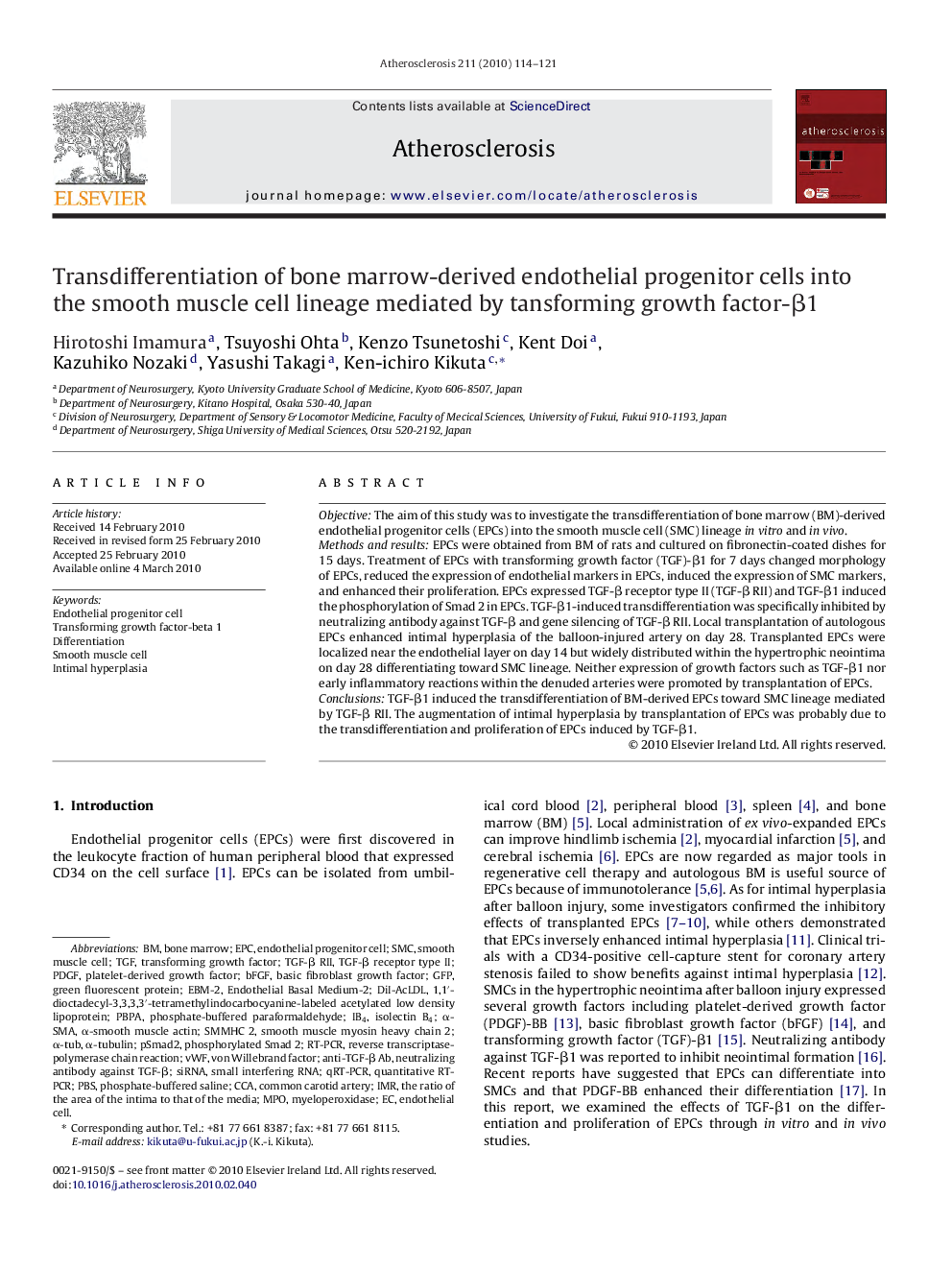| کد مقاله | کد نشریه | سال انتشار | مقاله انگلیسی | نسخه تمام متن |
|---|---|---|---|---|
| 5950279 | 1172396 | 2010 | 8 صفحه PDF | دانلود رایگان |

ObjectiveThe aim of this study was to investigate the transdifferentiation of bone marrow (BM)-derived endothelial progenitor cells (EPCs) into the smooth muscle cell (SMC) lineage in vitro and in vivo.Methods and resultsEPCs were obtained from BM of rats and cultured on fibronectin-coated dishes for 15 days. Treatment of EPCs with transforming growth factor (TGF)-β1 for 7 days changed morphology of EPCs, reduced the expression of endothelial markers in EPCs, induced the expression of SMC markers, and enhanced their proliferation. EPCs expressed TGF-β receptor type II (TGF-β RII) and TGF-β1 induced the phosphorylation of Smad 2 in EPCs. TGF-β1-induced transdifferentiation was specifically inhibited by neutralizing antibody against TGF-β and gene silencing of TGF-β RII. Local transplantation of autologous EPCs enhanced intimal hyperplasia of the balloon-injured artery on day 28. Transplanted EPCs were localized near the endothelial layer on day 14 but widely distributed within the hypertrophic neointima on day 28 differentiating toward SMC lineage. Neither expression of growth factors such as TGF-β1 nor early inflammatory reactions within the denuded arteries were promoted by transplantation of EPCs.ConclusionsTGF-β1 induced the transdifferentiation of BM-derived EPCs toward SMC lineage mediated by TGF-β RII. The augmentation of intimal hyperplasia by transplantation of EPCs was probably due to the transdifferentiation and proliferation of EPCs induced by TGF-β1.
Journal: Atherosclerosis - Volume 211, Issue 1, July 2010, Pages 114-121